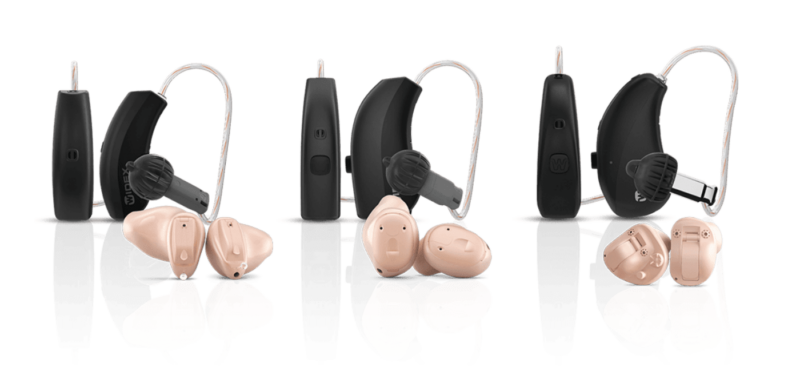 Sudden or prolonged exposure to noise can cause damage to your hearing and is one of the leading causes of hearing loss. Hearing loss from prolonged noise exposure is often detected too late, meaning the hearing loss is usually irreversible.
Sudden or prolonged exposure to noise can cause damage to your hearing and is one of the leading causes of hearing loss. Hearing loss from prolonged noise exposure is often detected too late, meaning the hearing loss is usually irreversible.
Hearing protection is extremely important for anyone who is regularly in a high-noise environment, including target shooters, motorcyclists, pilots, musicians, construction workers and factory workers. The truth is that anyone subject to noise exposure may need to wear hearing protection to protect their long-term hearing.
The following noises are especially dangerous with repeat exposure: lawn mowers, truck engines, motorcycles, garbage trucks, chain saws, pneumatic drills, musical concerts, gun shots and jet engines, to name a few.
Custom earplugs
Earplugs are hearing protection that are designed to be worn in the canal only. Some earplugs are solid, while others allow for more sound to pass through. Specialized earplugs are available for musicians and medical professionals who still want the ability to hear most of their surroundings while protecting their hearing.
Specialty earplugs can be custom fit for your ear canal and are typically more comfortable than non-custom earplugs. Custom earplugs can be equipped with handles or detachable cords.
Earplugs are not just for those who wish to protect themselves from high noise levels. Custom solutions are also available for other hobbies and activities, such as custom earplugs for swimmers, hunters or to be worn while sleeping.
Whatever your unique lifestyle, your hearing professional has custom solutions to fit your needs. Your hearing is important. Take care to protect it for today and for the future. If you work in a high-noise environment, it’s important to have regular hearing appointments to check for early indications of hearing loss.
Musician’s Earplugs
Musician’s earplugs come in both custom and non-custom options. Over-the-counter musician earplugs can reduce sound levels by approximately 20 dB, enough to reduce harmful sound without distorting speech or music.
Custom-made earplugs fit deeply in order to seal within the bony portion of the ear canal. This deep fit reduces what is known as occlusion, a hollow or boomy sound in the musician’s own voice that is sometimes experienced with lower quality earplugs. This style of deep-fit earmolds are popular with musicians because of the quality of sound they allow them to hear while practicing and performing.
Musician’s earplugs provide protection for:
- Musicians and music teachers
- Sound crews
- Recording engineers
- Concert-goers
- DJs
- Athletic coaches
- NFL football players
- Referees
- Motorcyclists
- Medical professionals
- Construction workers
- Industrial workers
- Truck drivers

In-ear musician monitors
For musicians who perform for large audiences, in-ear musician monitors (IEMs) are the current standard in musician technology. They allow the musician to clearly hear the music they are making as the audience would hear it while still protecting the musician’s ears from extremely loud amplification systems and audiences.
IEMs work best if they are custom molded to fit each musician’s ears personally. However, there is still the option of universal fit musician monitors. Universal IEMs typically come with interchangeable foam or silicone tips to allow for a semi-custom fit.
Custom fit
Both earmolds and IEMs can be custom made (using an ear impression) to fit your unique ear shape by your hearing healthcare provider.
The ear impression that is used to make the earmold or in-ear monitor is the most important part of the process in getting a good custom fit. The quality of the ear impression material and technique directly impacts the sound quality, sound isolation and comfort that are achieved with the earmold.
Because this part of the process is so crucial, it’s important that you hire someone who is experienced and trained in making impressions for high-quality musicians earmolds. Most hearing healthcare providers are trained in this process and know the importance of a good fit. Speak with your hearing healthcare provider about his or her experience in custom fitting patients with musician’s earmolds and IEMs and about your options for high-quality occupational hearing protection.







